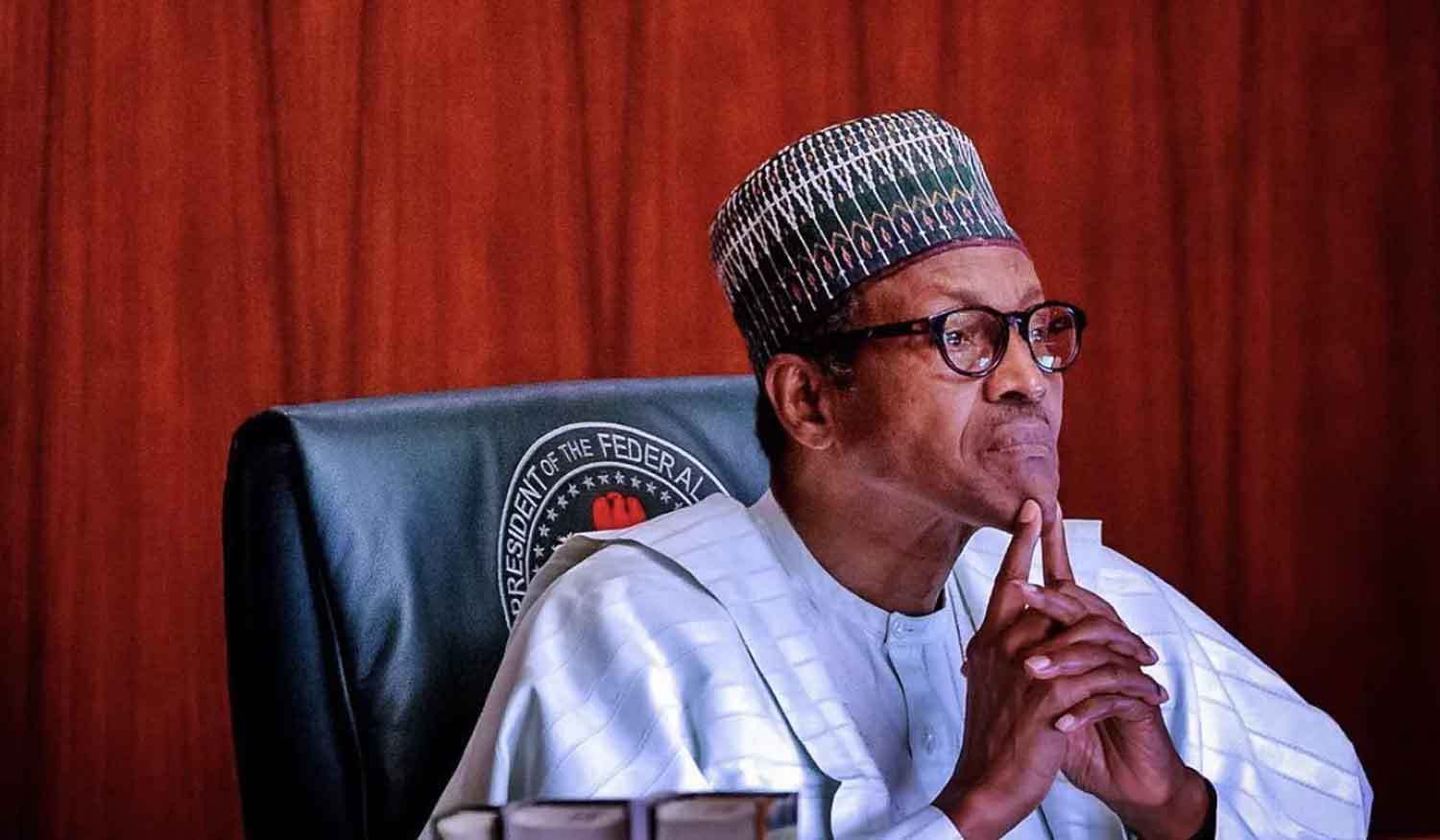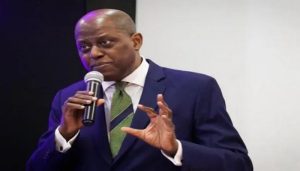
President Muhammadu Buhari resumed office this year with his imprimatur on the Appropriation Bill, which should, in a normative sense, confer enthusiasm on his administration’s last fiscal cycle and set a positive 2023.
The signing seemed to convey a strong sense of duty as well as the government’s commitment to breathing life into the economy, but nothing could be truer than the very opposite. The bill was passed by the National Assembly and transmitted to the President, at the most, two working days earlier. The original outlandish N21.51 trillion spending cap was increased by yet another N1.32 trillion by lawmakers. The markup – 6.1 per cent – is not only statistically significant but also makes a substantial difference when weighed against the prevailing tottering fiscal position.
The original budget had borne a badge of frivolity, dishonesty and outright self-denial. For one, the theme – ‘Budget of Fiscal Sustainability and Transition’ – is either crafted as a form of satire intended to mock the content of the appropriation or an error of commission.
The original bill contemplated a deficit of N10.78 trillion, which is well above the threshold of three per cent of gross domestic product (GDP) stipulated by the Fiscal Responsibility Act (2007). What is fiscally sustainable in funding over half of a budget with debts? Interestingly, official justifications mimic what many have described as uncreative thinking around the culture of deficit financing.
“As envisaged by the law, we need to exceed this threshold considering the need to continue to tackle the existential security challenges facing the country.
“We plan to finance the deficit mainly by new borrowings totalling 8.8 trillion naira, 206.18 billion naira from privatisation proceeds and 1.77 trillion naira drawdowns on bilateral/multilateral loans secured for specific development projects/programmes.
“Over time, we have resorted to borrowing to finance our fiscal gaps. We have been using loans to finance critical development projects and programmes aimed at further improving our economic environment and enhancing the delivery of public services to our people,” Buhari told the National Assembly during the budget presentation.
And the spending items the government would go loan-shopping to fund are not less ludicrous than the case made for borrowing spree. Non-debt and debt expenditure take as much as 67 per cent, leaving about one-third for phantom capital projects and other corruption conduits.
The blatant disregard for sobriety was to be extended several miles by the National Assembly, an institution held in high esteem in other democracies as the defender of public essence and antidote for executive recklessness.
The lawmakers, after so much faffing, increased the already-bloated revenue projections to justify their idea of big government. Uncreatively constrained, they padded their own N553.46 billion unfunded deficit into the hurriedly-passed document, raising the total expenditure to N21.83 trillion.
The lawmakers’ recent untidy handling of the appropriation reflects a political culture that tends towards spending but abhors the pains and rigour of wealth creation. Ministries, departments and agencies (MDAs), historically, have to wait for manna from heaven and protest any mention of self-sufficiency or commercialisation.
State governors are also assessed by how much of proceeds from the Federation Account they have not stolen and never how much wealth they create, a culture Prof. Godwin Owoh, an economist, said would continue to impoverish the sub-nationals and make a mess of the so-called federal system.
But sadly, and fortunately so, easy money is going away. From January to November 2022, The Federal Government earned a total of N586.71 billion from the sale of crude. The earnings were 64.3 per cent short of the prorata target for the period – a telling reflection of the weakening performance of the hydrocarbon sector, which has buckled under the heavy burden of crude theft and rising divestment.
Whereas the annualised retained revenue from oil last year would be N640 billion, the Federal Government still hopes it could rake in N2.29 trillion from the sector this year, close to four times of 2022 performance, to fund the budget. The optimism, perhaps, presupposes that it will reasonably reduce oil theft or that fresh investments have poured in to scale up output in the next few months.
Of course, there are a few wins that may have raised production levels. For instance, NNPC Limited has reported modest improvement in output following the recent war against oil theft but whether the efforts made would be sustained is also a depressing concern to stakeholders.
Buhari’s simplification of the unfunded deficit seems to demonstrate that the government is only interested in a budget and nothing more. Whereas many thought the two arms could resolve the discrepancies before his assent, the President went ahead to sign and transfer the headache of reconciling the difference with the lawmakers to the Minister of Finance, Budget and National Planning, Zainab Ahmed.
“We have examined the changes made by the National Assembly to the 2023 Executive Budget proposal. The amended fiscal framework for 2023 as approved by the National Assembly shows additional revenues of N765.79 billion and an unfunded deficit of N553.46 billion.
“It is clear that the National Assembly and the executive need to capture some of the proposed additional revenue sources in the fiscal framework. This must be rectified. I have also noted that the National Assembly introduced new projects into the 2023 budget proposal for which it has appropriated N770.72 billion. The National Assembly also increased the provisions made by MDAs by N58.55 billion,” Buhari said.
A day after the budget signing, Ahmed explained, in what appeared to be an afterthought, that the hanging deficit would be funded by “additional revenue from spectrum fees and tax on the maritime sector”. Indeed, this is one entrenching culture – creating a bouquet of expenditure items and going back to generate bizarre and painful revenue streams even if it means taxing a few sectors out of business, which is one of the reasons the Finance Act has become a reoccurring controversy in the fiscal space.
Last week, the Centre for the Promotion of Private Enterprise (CPPE), called for a total review of the Finance Bill 2022, saying it was hastily passed by the National Assembly without inputs from critical stakeholders. While the House of Representatives passed the piece of the important legislature before the date it advertised for a public hearing, the upper chamber handed down unrealistic notice. An Act that creates some new taxes while increasing others in an economy that is already burdened by sundry explicit and implicit taxes should get inputs from across the board, yet the latest finance Act now mired in executive-legislative dispute was handled differently.
But the trouble with the 2023 budget (and its legacies), is deeper than its many imbalances and desperate routes the government has taken to make up. With the deficit of the contrived version now standing at N11.34 trillion or 5.03 per cent of the GDP, the government intends to increase the existing debt burden with N8.8 trillion. The proposed fresh loan is split in the ratio of N1.76 trillion (foreign) and N7.04 trillion (local). The foreign portion is understandably small, yet there could be a problem sourcing it. Considering the restrictive monetary environment, the international debt market is extremely slippery with Ghana’s default only serving as one more blight on the prospect of African countries exploring facilities from the foreign market. There is also the issue of unaffordable funding costs.
The local scene is not any better. With the ratio of public sector credit to total net domestic credit increasing by 8.3 percentage points year-on-year (y/y) as at last November to 35.3 per cent, the fear over the effect of private investment crowding out is not a textbook matter anymore. The implication is telling on business growth and rising unemployment, which stood at 33.3 per cent as at 2020. And to think that the Federal Government alone will potentially mop up as much as N7 trillion from the market is frightening.
The debt will not come cheap anyway, with the monetary policy rate (MPR) now at 16.5 per cent. The negotiated interest in the outstanding N22.7 trillion Central Bank of Nigeria (CBN)’s overdraft is a clue of the cost of serving local debt – MPR plus 300 basis points (bps). If the MPR exceeds 17 per cent, which is a possibility, the Federal Government will be paying one-fifth of the debt as yearly interest. Except the executive secures approval to securitize the CBN’s facility and raise a nine-per cent bond as disclosed by Buhari, the Federal Government will incur an interest cost of N1.8 trillion on the overdraft this year alone, assuming the current MPR is held constant.
The unsustainable debt-to-revenue ratio is getting scarier. As of November, the ratio was 80.7 per cent, the highest in memorable history. The Country Director of the World Bank, Shubham Chaudhuri, told the media last year that the figure could hit 100.3 per cent this year and balloon to 160 per cent in 2027. This means the government will not be able to service its debts with retained earnings alone.
But that is still not all that has gone wrong with the key components of the budget. The projected revenue accumulation of N10.49 trillion is N3.99 trillion or 61.4 per cent higher than last year’s 11-month income. And that was the best year the country has seen in decades. All other projections also fly in the face of known statistical trends. As actual revenues fall short of expectations and recurrent expenditure demands continue to grow, investment in the capital takes a beating. For instance, only N1.88 trillion was said to have been released for capital projects from the 2022 budget.
Of the N21.83 trillion planned expenditure in the 2023 fiscal year, 30 per cent (N6.46 trillion) was earmarked for capital spending. But in line with tradition, capital votes take the backseat in difficult times like this, a situation that continues to rob Nigerians of the good taste of life experienced by other Africans. A document by the World Bank puts Nigeria’s 2021 per capita education spending at $23 whereas Kenya and Angola spent $96 the same year and South Africa $350 the previous year. Analysis across different sectors follows this trend.
All things being equal, if the government goes ahead with its spending template as planned, the total budget per capita is $224. That is about 10.4 per cent of what the South African government spent in 2021 and less than a quarter of that of Egypt, one of Nigeria’s regional economic rivals.
These beg questions on the value of this year’s appropriation. Are these benefits worth the many severe costs of the budget?








